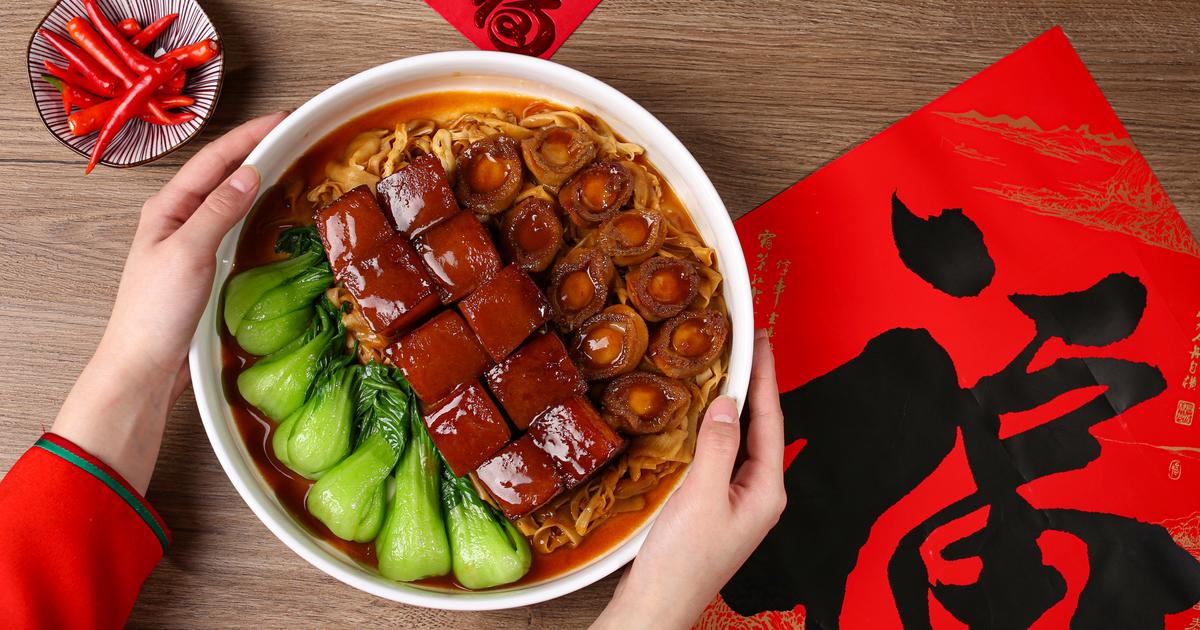China and USA: Dispute over travel warning from Washington – Shanghai omicron wave spills into neighboring regions
Created: 04/13/2022, 13:12
By: Christiane Kuehl
Most Shanghainese remain in lockdown.
They often get information about new rules via megaphone.
© Chen Jianli/Xinhua/AP/dpa
China reacts furiously to withdrawal of US diplomats from Shanghai.
But the USA continues to warn above all about the strict measures.
Anger is still palpable in Shanghai itself.
Shanghai/Munich – There is nothing China* and the US cannot argue about.
The latest war of words revolves around the sealed off corona hotspot Shanghai.
Because the State Department in Washington ordered non-essential staff from its consulate general in the economic metropolis back home this week.
The diplomats had previously been given the freedom to leave the country.
But "due to a spike in Covid-19 cases and the impact of restrictions related to (China's) response," Washington then apparently pulled the emergency brake.
A State Department travel advisory urges Americans to "reconsider" travel throughout China.
The ministry is primarily referring to strict Covid restrictions, including "the risk of parents and children being separated".
Of course, this annoys China.
In Beijing, people are proud of the zero-Covid policy, the harsh measures of which had the virus reasonably under control until the appearance of the omicron variant.
The narrative is: We defeat the virus while the West failed.
The fact that the US* is now publicly questioning Shanghai's ability to keep control of the current omicron wave doesn't fit in there.
Beijing firmly rejects the "baseless allegations" made by the US embassy in China, said foreign ministry spokesman Zhao Lijian.
He accused the US of politicizing the issue and “slandering China”.
China's disease control policy is "scientific and effective.
We have full confidence that Shanghai and other places will overcome this round of the epidemic."
Beijing has been in a trade dispute with the US for years;
the tensions between the two states continue to increase.
The two have also repeatedly argued about the origin of the corona pandemic since several politicians in Washington supported the thesis that the virus escaped from a laboratory in Wuhan at the end of 2019.
In the Ukraine war*, the People's Republic repeatedly blames Washington for the escalation.
Rarely at a loss for criticism of the USA: Zhao Lijian, spokesman for the Chinese Ministry of Foreign Affairs (archive photo).
© picture alliance/dpa/kyodo
China is the only country in the world to stick to a zero-Covid policy
Meanwhile, China is the last country in the world to stoically adhere to a zero-Covid policy*.
Other formerly strict countries such as Singapore, Australia and New Zealand are cautiously reopening.
In view of the highly contagious omicron variant, however, zero Covid is only possible to a limited extent with ever more drastic measures.
But the strategy is practically sacred in China, since according to official statements it was designed by President Xi Jinping personally.
Therefore, a short-term rethinking is not in sight.
Especially since Shanghai again reported record numbers of new infections on Wednesday: a good 26,300 cases, almost 1,200 of which were classified as “symptomatic”.
Everyone who tests positive has to be taken to a quarantine center, and people with symptoms to specially equipped infirmaries.
Videos have been circulating for days showing disgruntled citizens arguing with security guards, protests and even looting*.
Above all, there had been anger about the separation of even small children from their parents.
The city therefore presented special "parent-child compartments" in the quarantine centers as a major step forward.
Video posts with cheerful music show honeycombs made of half-height partition walls in which 2 to 18 year olds spend their isolation time with one parent.
The Shanghai local government has already publicly acknowledged mistakes* in connection with the lockdown, which was often perceived as chaotic.
At the same time, Vice Director of the National Health Commission Lei Zhenglong warned on duty that the outbreak in Shanghai had “not been effectively contained”.
This has now spread to many provinces, and the number of new infections is expected to remain high in the coming days.
China: More worried about restrictions than about Omicron
In fact, the outbreak in Shanghai is spilling over into neighboring provinces of Jiangsu and Zhejiang, where the first cities were locked down this week.
Both provinces are among the most important industrial centers in China;
many German companies produce there.
Many companies are suffering from growing supply chain disruptions*.
Even consignments of goods have to be quarantined in some places;
Truck drivers can no longer cross some province or county borders.
When China is expected to release economic figures for the first quarter early next week, the restrictions in more than 70 cities are likely to be reflected in lower growth rates.
Several representatives of the EU Chamber of Commerce in different locations have therefore recently called for a large-scale vaccination campaign instead of increasingly rigid lockdowns.
The vaccination rate among older people in China is low: only a good half of those over 80 have been vaccinated twice.
It is also unclear how effective the Chinese vaccines are against the omicron variant.
Foreign mRNA vaccines like those from Biontech are not approved in China, presumably for political reasons.
Instead, the country is currently developing its own mRNA vaccine.
(ck) *Merkur.de is an offer from IPPEN.MEDIA.














